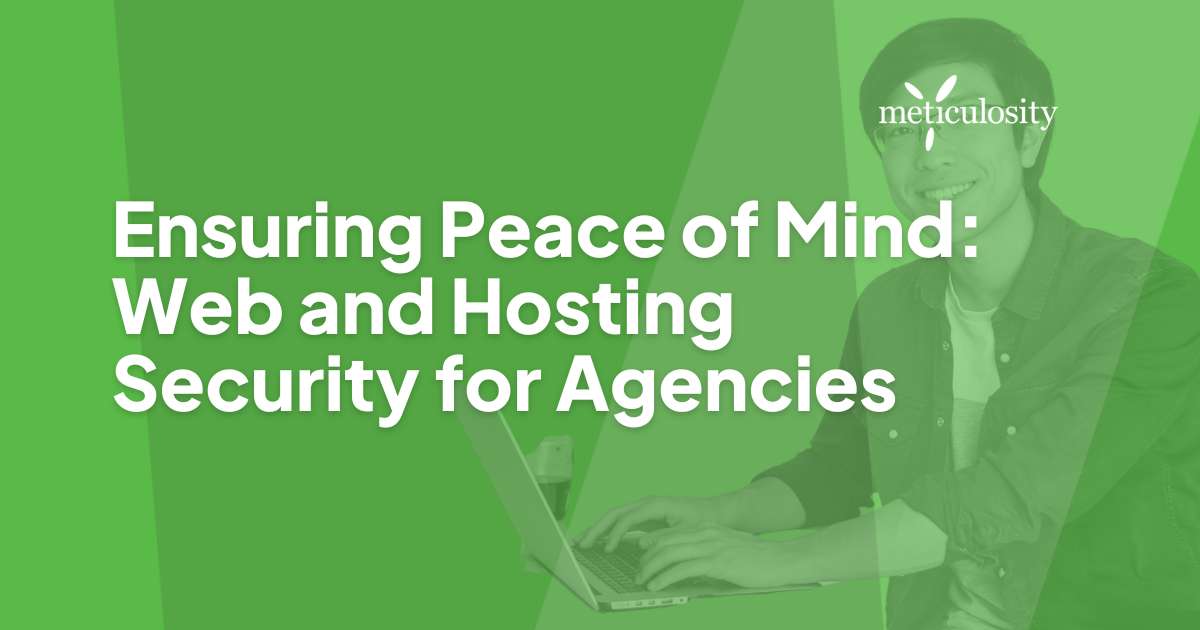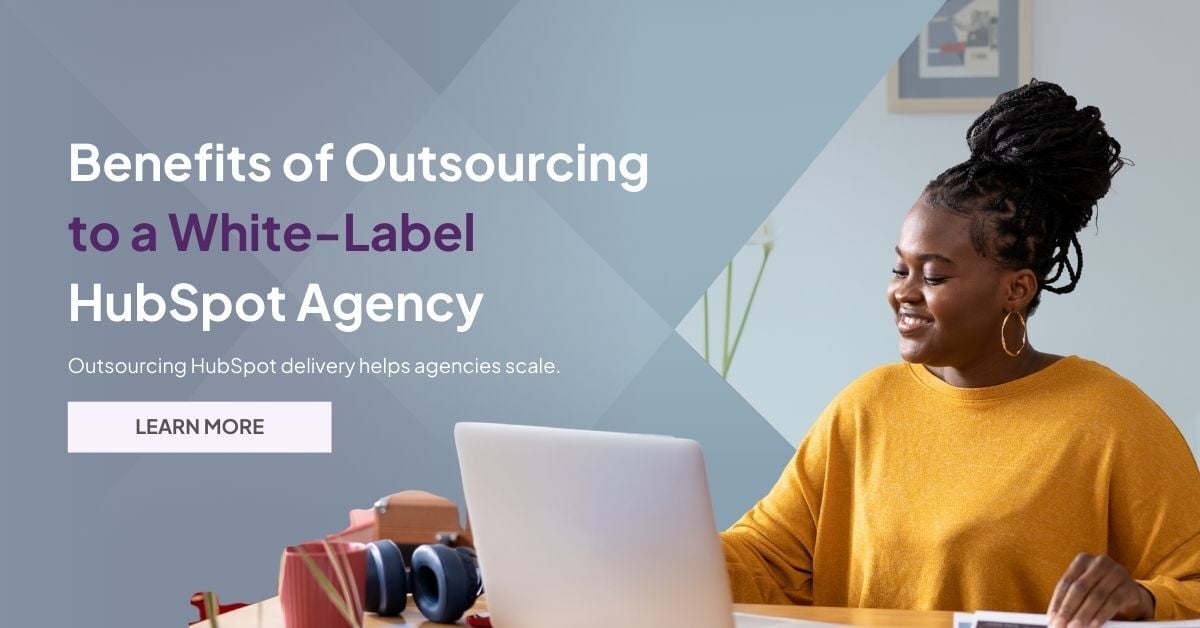Navigating the digital landscape can feel like standing guard over a fortress, ensuring your agency's online realm remains impregnable. In this vast cyber territory, even one small chink in the armor can lead to calamity.
Let’s embark on a journey together through expert strategies for securing your online world and anchoring your peace of mind. After all, safeguarding our success is not just about locks and alarms; it's about building a strong culture of security against any storm.
Key Takeaways
- Prioritize regular updates and backups, strong password management, secure hosting platforms, firewalls, anti-malware software implementation, and frequent security audits to ensure web and hosting security for agencies.
- By implementing robust web and hosting security practices, agencies can maintain website reliability, safeguard against cyber threats, prevent financial loss, and protect reputation and trust while ensuring uninterrupted operations.
Understanding the Importance of Web and Hosting Security
Protecting against cyber threats is crucial to maintaining the integrity of your website and ensuring that sensitive information remains secure. It also helps maintain your website's reliability, which is essential for providing a positive user experience.
Protecting against cyber threats
Cyber threats are like unwelcome guests trying to sneak into your party. They're always looking for a weak spot to get into your website and grab important information. It's your job to keep the doors locked tight against hackers, viruses, and other bad actors on the internet.
Ensure your web hosting is fortified so nothing nasty gets through that could harm your site or steal sensitive data.
Keeping everything under lock and key doesn't just mean a one-time fix; it's an ongoing battle. The next step in staying safe online means taking good care of your secrets.
Safeguarding sensitive information
Protecting against cyber threats is just one part of keeping your web and hosting secure. You also need to focus on safeguarding sensitive information. This means ensuring private details about clients, staff, and business operations are not in the wrong hands.
For you, it's all about lock and key - you treat online data with the same seriousness as physical documents locked in a safe.
You use strong encryption to keep this information secure when storing or sending it across the internet. It’s like putting a secret code on every piece of data so that only people who are meant to see it can understand it.
You also control who has access to what within your company; not everyone needs to know everything. By being careful with sensitive information, you reduce the risk of identity theft or data breaches that could hurt your clients or your agency.
Maintaining website reliability
You know, keeping websites up and running is a big deal. A site that's always available earns trust and keeps you happy. Cyberattacks or even small glitches can make your website crash, which is bad for business.
So, you focus on using the best tools to watch over your site all the time. This means checking on it often and fixing problems fast before they get bigger.
Security is key to making sure your website stays strong against attacks from hackers. You use DDoS protection and web security measures to stop trouble before it begins. It's like having a guard at your door 24/7.
Looking to empower your agency? Learn more here.
Top Tips for Ensuring Web and Hosting Security
Regularly updating and backing up your website helps to protect against cyber threats and ensure the reliability of your site. Strong password management, secure hosting platforms, firewalls, anti-malware software, and frequent security audits are crucial in maintaining web and hosting security.
Regular updates and backups
As marketers, we understand the importance of regular updates and backups regarding web and hosting security. Here are some tips to ensure your website stays protected:
- Stay updated with software and plugin updates to address any security vulnerabilities.
- Regularly back up your website data to prevent loss in a security breach or system failure.
- Utilize automated backup solutions to ensure consistent and reliable data protection.
- Implement a schedule for regular updates and backups to maintain your website's and hosting environment's security.
- Consider using secure hosting platforms that offer automatic updates and backups as part of their service offerings.
Strong password management
Managing passwords is crucial for web and hosting security. It's important to use strong, unique passwords for each account and regularly update them. Utilizing a password manager can help generate and store complex passwords securely.
Implementing two-factor authentication adds an extra layer of security, requiring a second verification form and password. Using these practices can significantly reduce the risk of unauthorized access and protect sensitive data from cyber threats.
As someone who takes web and hosting security seriously, prioritize strong password management to protect your online accounts from potential breaches. Using a reliable password manager has been instrumental in creating and managing complex passwords across different platforms without the fear of forgetting them or compromising security.
Utilizing secure hosting platforms
Regarding web and hosting security, utilizing secure hosting platforms is crucial for safeguarding your agency's online presence. Here are some ways to ensure the security of your hosting platform:
- Opt for reputable and established hosting providers that offer robust security features and frequent system updates.
- Choose hosting platforms with encryption protocols, such as SSL/TLS certificates, to protect data transmission between servers and visitors' browsers.
- Consider hosting providers that offer DDoS protection to mitigate the risk of distributed denial-of-service attacks and ensure uninterrupted website availability.
- Implement multi-factor authentication (MFA) for accessing your hosting platform, adding an extra layer of security beyond just passwords.
- Select hosting solutions that provide regular backups and disaster recovery options to prevent data loss in case of unexpected incidents or cyberattacks.
- Look for hosting platforms with a strong track record in maintaining uptime and reliability, minimizing the risk of website downtime due to security issues or technical failures.
Implementing firewalls and anti-malware software
Implementing firewalls and anti-malware software is crucial to protect your website. It helps safeguard against unauthorized access and malicious attacks, ensuring your sensitive data remains secure. Here are the key points to consider when implementing firewalls and anti-malware software:
- Regularly update and configure your firewall settings to block unauthorized access attempts.
- Install reputable anti-malware software to detect and remove any malicious programs that could compromise your website's security.
- Utilize intrusion detection systems (IDS) to identify potential security breaches and take proactive measures to prevent them.
- Implement network segmentation to isolate critical assets from potential threats within the network.
- Conduct regular security audits to ensure that your firewall rules are effective and up-to-date in protecting your website.
- Educate employees on recognizing and reporting potential security threats, including phishing attempts or suspicious activity on the network.
- Consider integrating a web application firewall (WAF) for an added layer of protection against common web-based attacks like SQL injection or cross-site scripting.
Conducting frequent security audits
Conducting frequent security audits is crucial to ensure your website's and hosting's ongoing protection. By regularly assessing your security measures, you can identify vulnerabilities and address them promptly to prevent potential breaches. Here are the key aspects to consider when conducting security audits:
- Scan for vulnerabilities in web applications and server configurations to identify potential entry points for cyber threats.
- Review access controls and user permissions to ensure that only authorized individuals can access sensitive data.
- Assess the effectiveness of your intrusion detection systems and incident response protocols to minimize the impact of security incidents.
- Evaluate the encryption protocols that safeguard data transmission and storage, ensuring compliance with industry standards.
- Verify the integrity of your backups and disaster recovery plans to mitigate the risk of data loss in case of a security breach.
Prioritizing Web and Hosting Security for Agency Success
Protecting your agency's reputation and preventing financial loss are just a few reasons why web and hosting security should be a top priority. Read on to learn more about ensuring peace of mind for your agency's online presence.
Protecting reputation and trust
Maintaining a secure web and hosting environment is essential for safeguarding our agency's reputation and the trust of our clients. By prioritizing website security, we demonstrate our commitment to protecting sensitive data and providing a safe online experience.
Implementing robust security measures helps us maintain credibility and assurance in the eyes of our customers, ultimately contributing to long-term success and positive brand perception.
Ensuring data protection and preventing any potential security breaches are crucial for upholding the reputation of our agency. With strong web and hosting security measures, we convey reliability and dedication to maintaining a safe digital space for our client's information, thereby earning their trust in our services.
Preventing financial loss
Preventing financial loss is crucial for agencies. By prioritizing web and hosting security, you can avoid costly breaches and downtime that could impact your bottom line. Secure hosting solutions like dedicated servers, virtual private servers (VPS), or cloud hosting provide robust protection against potential financial losses due to cyber attacks or data breaches.
Implementing strong password management, regular security audits, and utilizing secure hosting platforms are essential steps in safeguarding your agency's finances from potential risks associated with online security threats.
It’s important to recognize that preventing financial loss goes hand-in-hand with maintaining website reliability and protecting sensitive information. Investing in web and hosting security measures not only safeguards your agency's finances but also maintains the trust of your clients by demonstrating a commitment to their data protection and ensuring uninterrupted operations.
Ensuring uninterrupted operations
To ensure uninterrupted operations, it's crucial to prioritize web and hosting security. By implementing robust security measures like regular updates, strong password management, and firewalls, your agency can minimize the risk of website downtime due to cyberattacks.
Utilizing secure hosting platforms and conducting frequent security audits also play a key role in maintaining continuous online operations, safeguarding your reputation, and preventing potential financial losses.
Additionally, considering HIPAA-compliant hosting providers for protecting client data is essential to maintain seamless business continuity.

Secure Hosting Solutions for Agencies
Regarding secure hosting solutions for agencies, options like dedicated servers, virtual private servers (VPS), and cloud hosting offer enhanced security measures to protect sensitive data and ensure uninterrupted operations.
Dedicated servers
Dedicated servers are a secure option for web hosting. With dedicated servers, your website only uses the server's resources. This reduces the risk of security breaches from other websites.
Plus, you have full control over security measures and can customize them to fit your specific needs. By choosing dedicated servers, you ensure that your website has its own space on the internet, providing an extra layer of protection against potential threats like DDoS attacks.
Dedicated servers also offer high reliability and performance because they are not impacted by other websites' activities or traffic surges. This means faster loading times and a better overall user experience.
Virtual private servers (VPS)
Now, let's discuss virtual private servers (VPS), which offer a middle ground between shared hosting and dedicated servers. VPS hosting provides more control and privacy than shared hosting, allowing agencies to customize their server environment while sharing physical hardware with other users.
It ensures enhanced security and performance with the flexibility to scale resources as needed. Additionally, VPS hosting offers HIPAA-compliant options, enabling agencies to safeguard sensitive client data effectively.
When considering VPS hosting, it's crucial to prioritize security features such as DDoS protection, regular backups, and strong network security measures. This ensures that the agency's website and hosted applications remain protected from potential cyber threats while maintaining optimal performance.
Cloud hosting
Cloud hosting is a flexible and scalable solution for agencies seeking secure web and hosting services. It offers reliable performance, high availability, and cost-effectiveness. With cloud hosting, your website's data is distributed across multiple servers, reducing the risk of downtime due to server failures or traffic spikes.
This helps in safeguarding sensitive information while ensuring uninterrupted operations for your agency.
Implementing cloud hosting enhances website security by providing DDoS protection and regular vulnerability scanning. It also ensures data protection through secure data hosting measures.
Moreover, cloud hosting enables easy scalability to accommodate growing business needs without compromising on security.
Enhancing Website Security
Implementing SSL certificates, website security plugins, and regular vulnerability scanning are essential for enhancing website security and protecting against potential threats.
SSL certificates
SSL certificates are crucial for securing your website and ensuring that data transmitted between your website and its users is encrypted. When a user enters sensitive information such as credit card details, SSL certificates help protect this data from being intercepted by hackers.
This not only provides reassurance to your website visitors but also helps improve your website's search engine ranking since search engines prioritize secure websites. Implementing an SSL certificate is an essential step in safeguarding your customers' data and your agency's reputation.
We strongly recommend obtaining an SSL certificate to establish trust with your audience, protect sensitive information, and enhance the security of your website. Don't underestimate the significance of this simple yet powerful security measure in today's digital landscape.
Website security plugins
Utilizing website security plugins is crucial to enhance website security beyond SSL certificates. Here are some essential website security plugins to consider for safeguarding your agency's online presence:
- Firewall Plugins: Implementing a firewall plugin can help monitor and filter incoming traffic to prevent malicious attacks and unauthorized access to your website.
- Malware Scanning Plugins: Utilize malware scanning plugins to regularly scan your website for malicious software or code, ensuring timely detection and removal of potential threats.
- Login Security Plugins: Strengthen login security with dedicated plugins that offer features such as two-factor authentication, login attempt monitoring, and IP blocking to prevent unauthorized access.
- Vulnerability Assessment Plugins: These plugins assist in identifying and addressing any vulnerabilities or weaknesses in the website's code, infrastructure, or configurations, bolstering overall security measures.
- Security Audit Trail Plugins: Implement auditing plugins to keep track of all activities and changes made on the website, offering transparency and accountability in case of security incidents.
Regular vulnerability scanning
Now, let's discuss the importance of regular vulnerability scanning as part of your web and hosting security measures. Here are some points to consider:
- Identify Weaknesses: Regular vulnerability scanning helps to identify any potential weaknesses or loopholes in your website or hosting environment.
- Proactive Security Measures: By conducting frequent scans, you can proactively address any vulnerabilities before cyber threats exploit them.
- Compliance Requirements: Many regulatory standards, such as HIPAA, mandate regular vulnerability assessments to ensure compliance with security standards.
- Patch Management: Vulnerability scans help identify outdated software or patches that require updating for enhanced security.
- Risk Mitigation: By conducting regular scans, you can mitigate the risk of data breaches and unauthorized access to sensitive information.
- Continuous Monitoring: Ensure that vulnerability scanning is integrated into your overall security strategy for continuous monitoring and protection against emerging threats.
- Automated Scanning Tools: Consider utilizing automated scanning tools to streamline the process and receive timely alerts on potential vulnerabilities.
- Response Planning: Develop a structured response plan to promptly address any vulnerabilities identified through the scanning process.
Managing Passwords Effectively
Utilize password managers and implement two-factor authentication to enhance your web and hosting security.
The use of password managers
Using password managers is essential for keeping your online accounts secure. These tools help you generate strong, unique passwords for each website or platform you use. They also securely store these passwords so you don't have to remember them all.
With a good password manager, you can easily access your login information across different devices and protect your sensitive data from potential security breaches.
Incorporating a reliable password manager into your security practices can significantly reduce the risk of unauthorized access to your valuable business information.
Implementing two-factor authentication
Implementing two-factor authentication
Implementing two-factor authentication adds an extra layer of security to your online accounts. This means that even if someone gets your password, they still need other information to access your account.
It could be a unique code sent to your phone or generated by an app. Using two-factor authentication significantly reduces the risk of unauthorized access and keeps sensitive data safer.
Marketers and business professionals should prioritize implementing this extra security measure to protect their valuable information from hackers and cyber threats.

Conclusion
In conclusion, web and hosting security is crucial for agencies to protect against cyber threats, safeguard sensitive information, and maintain website reliability. By prioritizing regular updates and backups, strong password management, secure hosting platforms, firewalls, anti-malware software implementation, and frequent security audits, agencies can ensure peace of mind regarding their online presence.
Click here to learn more about agency marketing.
FAQs
1. How crucial are web and hosting security for marketing agencies, and why should it be a priority?
-
- Protecting Client Data: Web and hosting security are critical for safeguarding sensitive client information and ensuring trust and compliance with data protection regulations.
- Preventing Cyber Threats: Security measures defend against cyber threats such as hacking, data breaches, and unauthorized access, minimizing the risk of disruptions and reputation damage.
- Maintaining Website Integrity: Security is essential for preserving the integrity of agency websites, preventing unauthorized alterations or defacement.
2. What specific security measures should marketing agencies implement for their websites and hosting infrastructure?
-
- SSL Encryption: Implementing SSL (Secure Sockets Layer) encryption to secure data transmitted between the website and users.
- Regular Security Audits: Conducting routine security audits to identify vulnerabilities and weaknesses in website and hosting infrastructure.
- Firewalls and Intrusion Prevention Systems: Installing firewalls and intrusion prevention systems to monitor and block malicious activities.
- Secure Hosting Providers: Choosing reputable and secure hosting providers with a track record of prioritizing data protection and robust security measures.
3. How can agencies ensure client data confidentiality while outsourcing web and hosting security services?
-
- Strict Confidentiality Agreements: Agencies should establish clear and strict confidentiality agreements with security service providers to safeguard client data.
- Transparent Communication: Maintaining transparent communication with clients about security practices and measures to keep their data confidential.
- Selective Data Sharing: Only share necessary information with security providers and limit access to sensitive client data to authorized personnel.
4. How does robust web and hosting security contribute to marketing agencies' and their clients' overall peace of mind?
-
- Client Trust: Implementing strong security measures builds trust with clients, assuring them that their data is secure and handled with the utmost confidentiality.
- Business Continuity: Security measures ensure the continuous operation of websites, minimizing the risk of downtime due to security incidents.
- Regulatory Compliance: Adhering to security best practices helps agencies comply with data protection regulations, avoiding legal issues and reputational damage.
Ensuring peace of mind through robust web and hosting security measures is necessary for marketing agencies and a key element in building and maintaining trust with clients.







